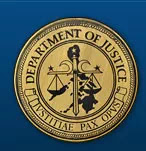According to Sources,Almost 9 out of 10 Filipino Internet users have been victimized by cybercrime or a malicious activity on the Internet at one time or another, the Department of Justice (DOJ) primer on facts and trends about cybercrimes committed in the country, Manila, Philippines.
The primer on Philippine cybercrime has been prepared by the DOJ as part of its advocacy program to prevent abuses in cyberspace as the legality of the new law against cybercrime is being deliberated in the Supreme Court.
In the three-page primer presented in a question and answer format, the DOJ said that cybercrime has become “one of the fastest growing crimes globally.”
In the Philippines, the primer quoted a 2010 report of the security software firm Symantec that as many as 87 percent of Filipino internet users (nearly nine out of 10) were identified as victims of crimes and malicious activities committed online. These included being victimized in activities such as malware (virus and Trojan) invasion; online or phishing scams; sexual predation; and services in social networking site like Facebook and Twitter.
From 2003 to 2012, the Anti-Transnational Crime Division (ATCD) of the Criminal Investigation and Detection Group (CIDG) of the Philippine National Police (PNP) looked into 2,778 referred cases of computer crimes from government agencies and private individuals nationwide.
The primer defined cybercrime as a crime committed “with or through the use of information and communication technologies such as radio, television, cellullar phone, computer and network, and other communication device or application.”
The primer also noted that the first cybercrime case in the country was the controversial case involving Onel de Guzman who in 2000 released the “I Love You” virus.
“The case filed against De Guzman was dismissed at the first stage because there was no law punishing the deed as of that time in May 2000 in the Philippines,” it said.
The primer also said that two cybercriminals had been convicted for hacking under Republic Act no. 8792 or the Electronic Commerce Act or the E-Commerce Act. The first conviction involved a person caught hacking the government portal gov.ph and other government websites while the other involved a person who used the Business Process Outsourcing (BPO) call center provider Sitel Philippines Corporation to illegally secure credit card information from the company’s sister firm, Sitel USA.
Since the new law against cybercrime has been suspended, the government is dealing with cybercrime-related cases using existing laws such as the E-Commerce Act, RA 9995 or the Anti-Photo and Voyeurism Act of 2009, RA 9725 or the Anti-Child Pornography Act of 2009, RA 9208 or the Anti-Trafficking in Persons Act of 2003, RA 8484 or the Access Device Regulation Act of 1998 and RA 4200 or the Anti-Wire Tapping Law.

